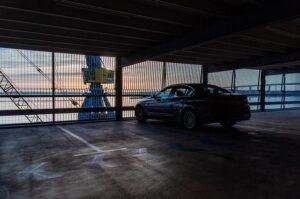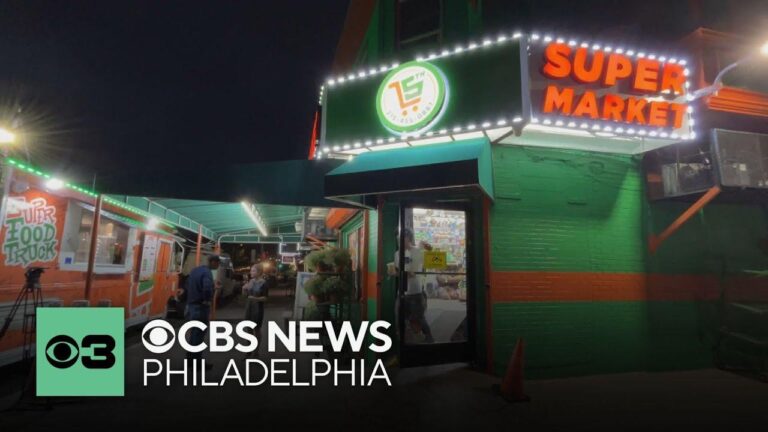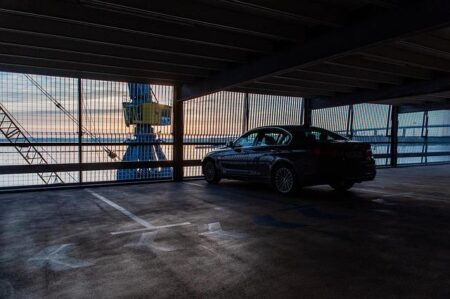Philadelphia Broadens Overnight Business Curfew to More North Philadelphia Areas
In a bid to enhance public safety and reduce nighttime disruptions, Philadelphia has announced an extension of its overnight business curfew to encompass additional neighborhoods in North Philadelphia. This policy adjustment reflects the city’s ongoing commitment to safeguarding residents while managing the economic vitality of local businesses. The newly included areas—Hunting Park, Olney, and Kensington—will now observe restricted business hours from 11 p.m. to 5 a.m., aiming to mitigate late-night disturbances that have affected community well-being.
Details of the Curfew Expansion and Affected Zones
The expanded curfew applies to a broad range of establishments, including retail shops, dining venues, and entertainment spots. Enforcement will be a joint effort between Philadelphia Police and Business Compliance Officers, with provisions allowing businesses to apply for special permits to operate beyond curfew hours under certain conditions. Penalties for non-compliance will escalate with repeated violations, underscoring the city’s firm stance on maintaining order.
- Curfew hours: 11 p.m. to 5 a.m.
- Business categories affected: retail, food service, entertainment
- Enforcement by police and compliance officers
- Permit options available for extended operations
- Progressive fines and warnings for violations
| Neighborhood | Curfew Timeframe | Types of Businesses Affected |
|---|---|---|
| Hunting Park | 11 p.m. – 5 a.m. | Retail stores, Restaurants, Bars |
| Olney | 11 p.m. – 5 a.m. | Retail outlets, Food service establishments |
| Kensington | 11 p.m. – 5 a.m. | Entertainment venues, Retail businesses |
Effects on Businesses and Neighborhood Safety
The curfew extension has elicited diverse reactions from the local business community. Many proprietors of late-night establishments, such as diners and convenience stores, report challenges due to curtailed operating hours, which coincide with their busiest periods. This reduction in after-hours customer flow has led to decreased revenues, prompting some to rethink staffing levels and inventory management. Conversely, some entrepreneurs believe the curfew could cultivate a safer, more inviting atmosphere that attracts a broader clientele during permitted hours.
From a public safety perspective, advocates highlight that the curfew helps law enforcement by limiting the window for nocturnal disturbances and criminal acts. Preliminary statistics from neighborhoods previously under curfew indicate a reduction exceeding 15% in late-night incidents, according to recent police data. However, critics caution that such measures might displace problems to adjacent areas and restrict residents’ freedom of movement. Ongoing collaboration among city officials, business leaders, and community organizations remains vital to achieving a sustainable balance.
- Business Impact: Adjustments in operations and revenue fluctuations
- Resident Experience: Enhanced sense of security with some limitations on nighttime mobility
- Law Enforcement: Improved ability to maintain public order
| Sector | Outcome | Immediate Effect |
|---|---|---|
| Local Businesses | Decline in revenue | Significant |
| Community Safety | Decrease in nighttime crime | Moderate |
| Residents | Restricted nighttime movement | Moderate |
Enforcement Strategies and Business Assistance Programs
To ensure adherence to the new curfew, Philadelphia officials have intensified enforcement efforts, including increased overnight patrols in the affected neighborhoods. Officers are tasked with prioritizing prevention and public safety, while maintaining open communication with business owners to clarify curfew regulations and avoid accidental breaches. Specialized teams will focus on monitoring busy commercial corridors to deter unlawful activities and bolster community security.
Understanding the economic strain on businesses, the city has introduced support measures such as grants aimed at upgrading security infrastructure and providing advisory services to help businesses adapt their operations. The Department of Commerce is also facilitating weekly online workshops to share best practices and assist with regulatory compliance. Key enforcement and support initiatives include:
| Enforcement Actions | Business Support Programs |
|---|---|
| Expanded overnight police patrols | Small business grant opportunities |
| Focused compliance inspections | Virtual training and advisory sessions |
| Community liaison officers engagement | Funding for security system enhancements |
| Real-time violation reporting hotline | Consultations on flexible licensing options |
Guidance for Residents and Business Owners on Adapting to Curfew Rules
Residents should remain well-informed about the specific curfew hours and plan their evening activities accordingly. Limiting travel during curfew times, staying indoors when possible, and maintaining communication with family or neighbors are recommended for personal safety. Reporting any disturbances or violations to authorities helps uphold community order and security.
Business owners are encouraged to comply fully with the curfew to avoid penalties and support neighborhood safety. Practical steps include:
- Modifying business hours to close before the curfew begins.
- Upgrading security measures, such as installing additional lighting and surveillance cameras, particularly in parking areas and entrances.
- Informing customers about new operating hours and safety protocols through signage and digital platforms.
- Engaging with local law enforcement for updates and assistance in maintaining compliance.
| Recommendation | Advantage |
|---|---|
| Reduce on-site staff during curfew hours | Lowers operational risks and costs |
| Implement contactless payment options | Minimizes physical contact and expedites transactions |
| Coordinate delivery schedules with curfew times | Ensures uninterrupted supply chain operations |
Summary and Outlook
As Philadelphia broadens its overnight business curfew to more neighborhoods in North Philadelphia, city leaders stress the importance of addressing safety concerns while supporting economic activity. Although the curfew aims to reduce late-night disturbances, it has generated a spectrum of responses from residents and business owners. This evolving policy highlights the complexities of maintaining public order in a diverse urban environment. Ongoing monitoring and community engagement will be essential to refining these measures and ensuring they meet the needs of Philadelphia’s neighborhoods.








